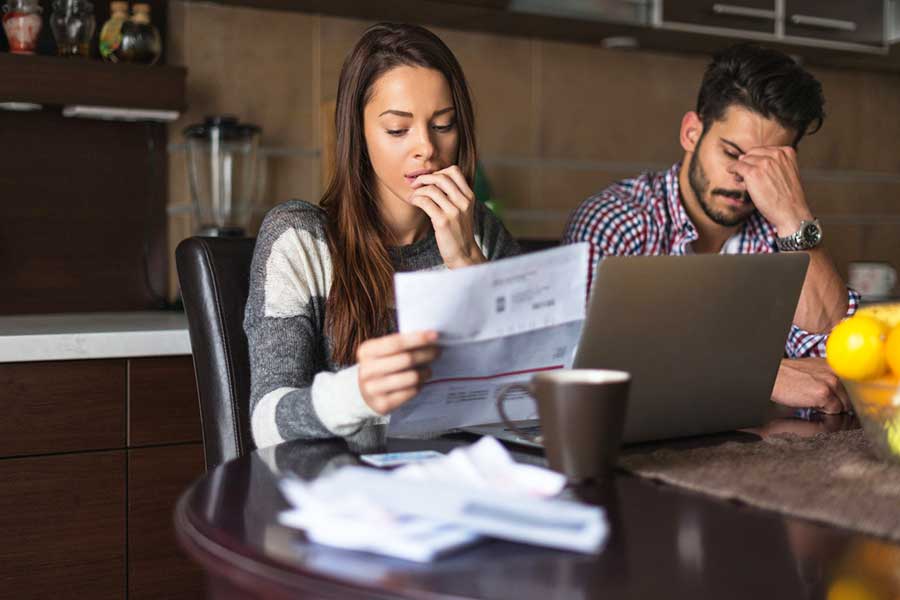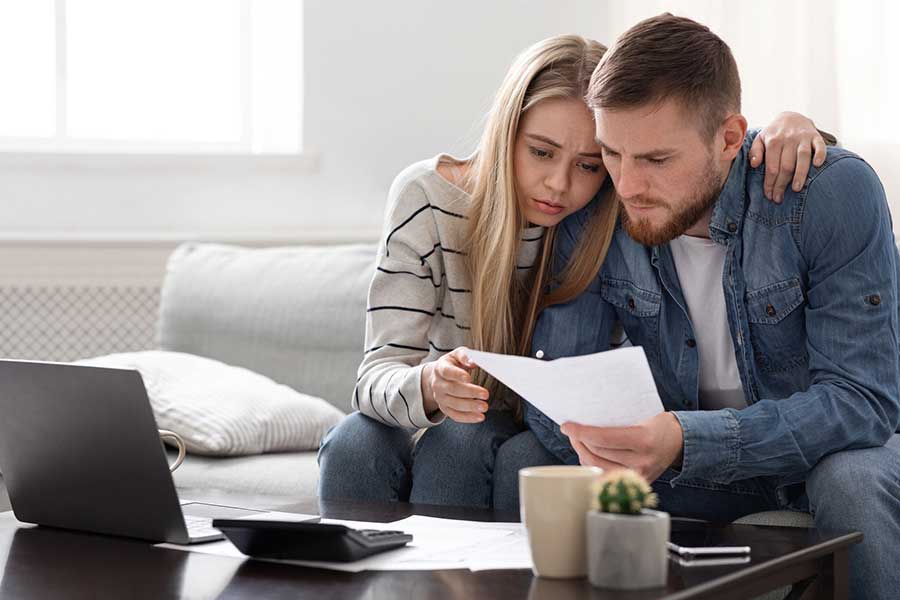Writing or receiving a bad check can create serious problems. Banks may charge steep fees, merchants may lose trust, and in some cases, legal action can follow. A single bounced check can ripple into financial stress and strained relationships.

A bad check is one written without enough money in the account to cover it, or one written from a closed or fake account. In simple terms, it is a check that cannot be processed because the funds are not there.
This article breaks down what counts as a bad check, why it happens, what the consequences look like, and how you can avoid being on either side of the situation.
What Is Considered a Bad Check?
A bad check is any check that a bank cannot honor because the account does not have the money or the check itself is invalid. This can happen in several ways.
- Insufficient funds: The account balance is too low to cover the amount on the check.
- Closed account: The check was written from an account that is no longer active.
- Forged or fraudulent check: The check was altered, fake, or written without the account holder’s permission.
- Stop payment by account holder: The person who wrote the check asked the bank not to process it.
Why People End Up Writing Bad Checks
Most people do not set out to write a bad check, but it still happens often. In some cases, it is an accident, while in others it is intentional.
- Honest mistakes: Someone may forget about pending transactions and believe there is more money in the account than there actually is.
- Timing mismatches: A paycheck or deposit might not clear before the check is cashed, causing a temporary shortfall.
- Intentional fraud: Some checks are written with full knowledge that the account cannot cover the funds.
Legal and Financial Consequences of a Bad Check
Writing or accepting a bad check carries both financial penalties and potential legal risks. The exact outcome depends on the circumstances and the state where it happens.
Bank and Merchant Penalties
Banks and merchants impose their own fees when a check bounces. These costs add up quickly.
- NSF fees: Banks charge non-sufficient funds fees, often between $30 and $40, when a check cannot be processed.
- Merchant return fees: Businesses may tack on an additional $20 to $50 to cover their own costs.
- Account closure: If bad checks are frequent, the bank may close the account altogether.
Credit and Banking Impact
A bad check can harm your future banking options and your record with consumer reporting agencies.
- ChexSystems report: Writing bad checks can lead to a negative record in ChexSystems, which many banks use to screen new customers.
- Restricted access: Once flagged, you may struggle to open new accounts or qualify for certain services.
Legal Consequences
Beyond financial penalties, some cases move into the legal system.
- Civil liability: You may be sued for the amount of the check plus additional damages.
- Criminal charges: If the check was written intentionally without funds or from a closed account, prosecutors may pursue criminal charges. Penalties vary by state and can range from fines to jail time.
What Happens If You Deposit a Bad Check?
Depositing a bad check can create headaches for the recipient as well. Even if you deposit it in good faith, the bank will return the check unpaid.
- Reversed deposit: The money may appear in your account temporarily, then disappear once the check bounces.
- Bank fees: You may be charged a returned deposit item fee, often $10 to $15.
- Account risk: Repeated deposits of bad checks can trigger account reviews or closure.
How to Protect Yourself From Receiving a Bad Check
It is not always easy to spot a bad check, but there are steps you can take to reduce the risk.
- Look for red flags: Checks from unfamiliar banks, unusually high amounts, or checks that require you to wire money afterward are suspicious.
- Verify with the bank: You can call the issuing bank to confirm the account exists and has funds.
- Use secure payment methods: For large or risky transactions, ask for a cashier’s check, money order, or electronic transfer instead of a personal check.
How to Avoid Writing a Bad Check
Bad checks can often be prevented with better money management and account monitoring. Simple habits can help keep you from making this mistake.
- Keep a buffer: Always leave extra funds in your checking account to cover unexpected withdrawals.
- Track pending transactions: Write down debit card purchases, automatic payments, and checks that have not cleared yet.
- Set up overdraft protection: Link your checking account to a savings account or line of credit so the bank can cover overdrafts.
- Use alerts: Turn on text or app notifications for low balances or large transactions.
Bad Check Fees: Bank vs. Merchant Comparison
The costs of a bad check do not stop at the bank. Both banks and merchants can charge fees when a check bounces.
| Fee Type | Typical Bank Fee | Typical Merchant Fee | Notes |
|---|---|---|---|
| NSF/Returned Item Fee | $30–$40 | N/A | Charged by your bank when funds are insufficient |
| Returned Check Fee | N/A | $20–$50 | Charged by the business when a check is returned unpaid |
| Account Closure Risk | Possible | N/A | Banks may close accounts with repeated bad checks |
Alternatives to Writing Checks
Paper checks are less common today, and safer payment methods are widely available. Choosing one of these can help you avoid the problems that come with bad checks.
- Debit or credit cards: Accepted almost everywhere and give instant confirmation of payment.
- ACH transfers: Secure electronic transfers between banks, often used for bills or direct payments.
- Payment apps: Services like Zelle, Venmo, or PayPal make it easy to send money quickly.
- Money orders or cashier’s checks: Guaranteed forms of payment that are more reliable than personal checks.
What to Do If You Have Written or Received a Bad Check
Whether you wrote the check or accepted one, taking quick action can limit the damage.
If You Wrote the Check
- Deposit funds quickly: Add enough money to your account to cover the check before it bounces.
- Contact the payee: Let the recipient know the issue and work out repayment to avoid added fees or legal action.
- Arrange repayment if needed: Offer a replacement payment method such as cash, cashier’s check, or electronic transfer.
If You Received the Check
- Contact the check writer: Notify them right away and request repayment.
- Request another form of payment: Ask for cash, a money order, or another secure method.
- Explore legal remedies: If the payment is not made, you may be able to take civil action to recover the amount owed.
Final Thoughts
Bad checks can cause problems for both the writer and the recipient. From steep bank fees to possible legal consequences, the costs are higher than many expect.
The best way to avoid trouble is to manage your checking account carefully, verify payments before accepting them, and use secure payment methods whenever possible. If you have trouble maintaining a traditional checking account due to past banking issues, second-chance checking accounts may provide a way back into the system.



